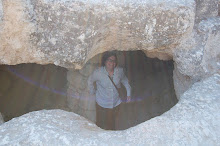tonight i was trying to prepare something for the Kairos reflection tonight. while it ultimately devolved into a much more enjoyable night of feeding friends and chatting, i was glad for the time to reflect on the intersection of "ordinary" time and storytelling. it's been coalescing in my mind, as we head into Ordinary Time, that within all the work we do and the issues we address, story can sometimes get lost under fact and hyperbole and official excuses.
for example, i have been thinking, as i am sure many have, about the situation in Gaza. not only was there the needless deaths of those trying to get into Gaza with humanitarian aid, but there have been reported air raids into Gaza as well. All of these things are massively horrifying, but i found myself most moved and saddened and convicted by the first-person stories of what happened on the Freedom Flotilla. The first-person stories of what it was like on the boat contained some incredibly touching moments. It can be found here. those stories, while not eclipsing the broad picture of facts and strategies and solutions, throw into high relief the real cost of doing nothing. these people, with names and faces and a story to tell, narrowly avoided losing their lives. others didn't. thinking of these people - the ones who lived and the ones who died - moves me more than facts. i feel like that must be true for more than me.
in planning for the night, i found this poem by Naomi Shihab Nye, which also helped me realize the beautiful power of story and the ordinary, even in the face of violence and oppression.
The Words Under the Words
(for Sitti Khadra, north of Jerusalem)
-Naomi Shihab Nye
My grandmother's hands recognize grapes,
the damp shine of a goat's new skin.
When I was sick they followed me,
I woke from the long fever to find them
covering my head like cool prayers.
My grandmother's days are made of bread,
a round pat-pat and the slow baking.
She waits by the oven watching a strange car
circle the streets. Maybe it holds her son,
lost to America. More often, tourists,
who kneel and weep at mysterious shrines.
She knows how often mail arrives,
how rarely there is a letter.
When one comes, she announces it, a miracle,
listening to it read again and again
in the dim evening light.
My grandmother's voice says nothing can surprise her.
Take her the shotgun wound and the crippled baby.
She knows the spaces we travel through,
the messages we cannot send-our voices are short
and would get lost on the journey.
Farewell to the husband's coat,
the ones she had loved and nourished,
who fly from her like seeds into a deep sky.
They will plant themselves. We will all die.
My grandmother's eyes say Allah is everywhere, even in death.
When she talks of the orchard and the new olive press,
when she tells the stories of Joha and his foolish wisdoms,
He is her first thought, what she really thinks of His name.
"Answer, if you hear the words under the words -
otherwise it is just a world with a lot of rough edges,
difficult to get through, and our pockets full of stones."
In this "ordinary" time, I'm committing to finding the story in the ordinary. This Sunday, we'll here again the very extraordinary way that our Savior performs the ordinary act of feeding people. There was a story there, but there's a story every time we feed people who need it. There are stories in the ordinary work we do. i want to commit to finding those stories, collecting them, and bringing them as presents to the One Who Writes Our Stories.
Thursday, June 3, 2010
Subscribe to:
Post Comments (Atom)

thank you, thank you for this!
ReplyDelete